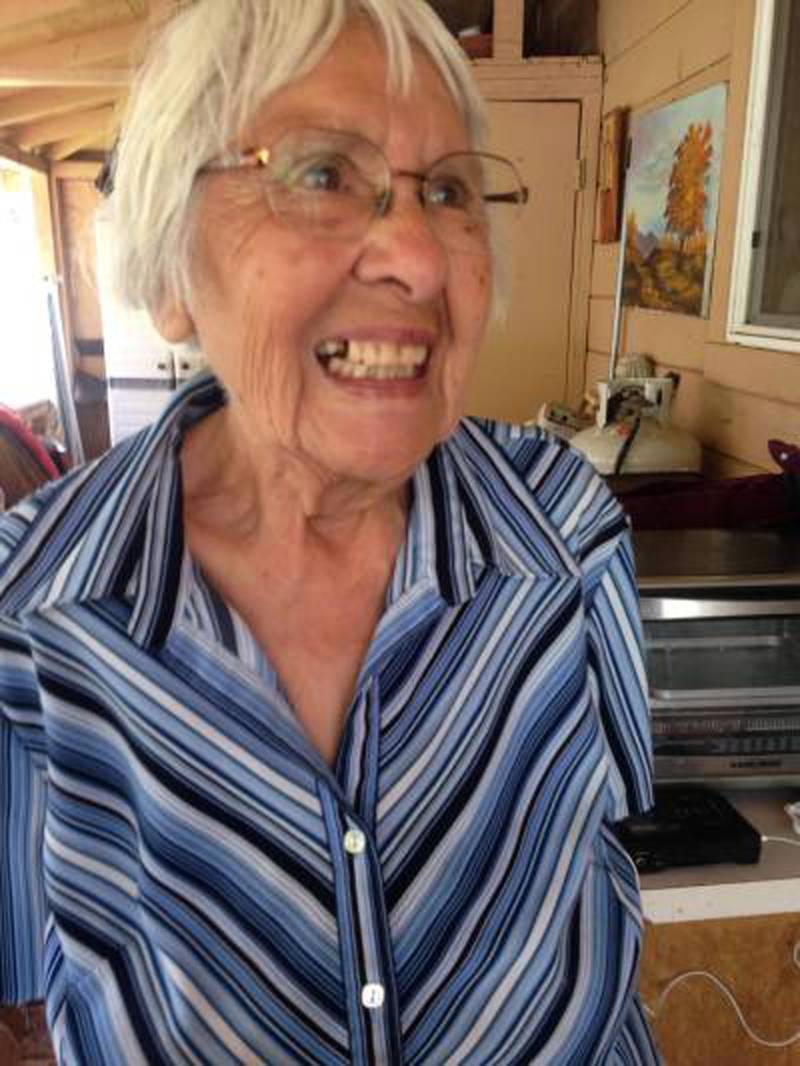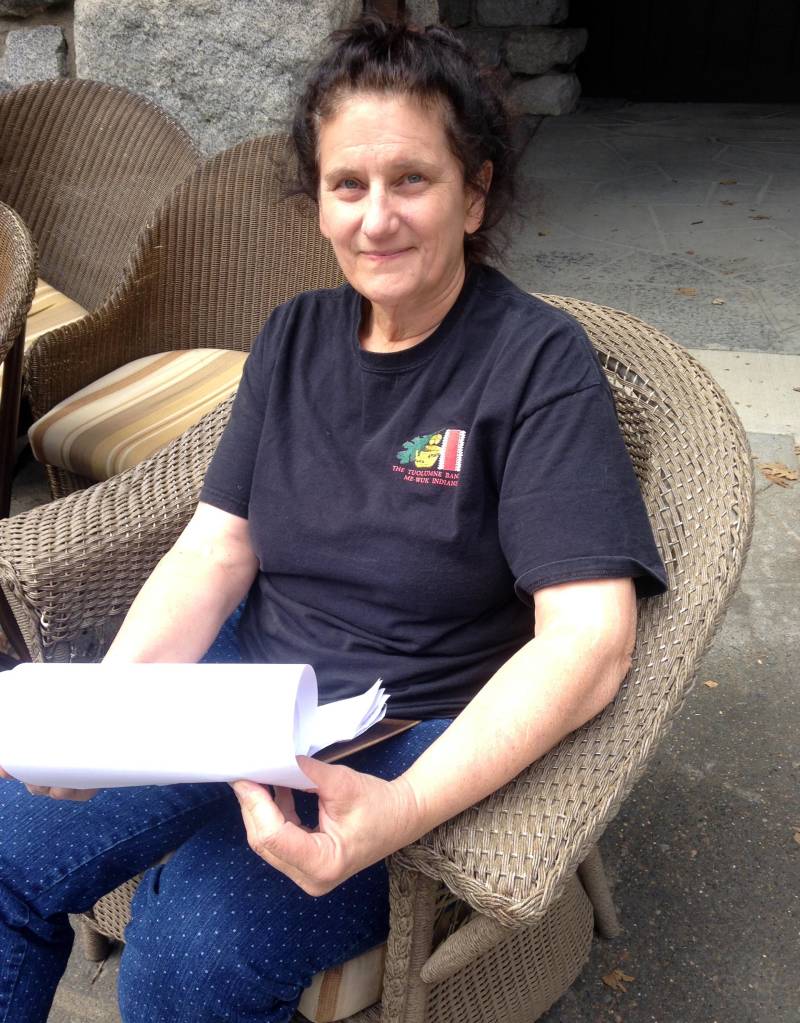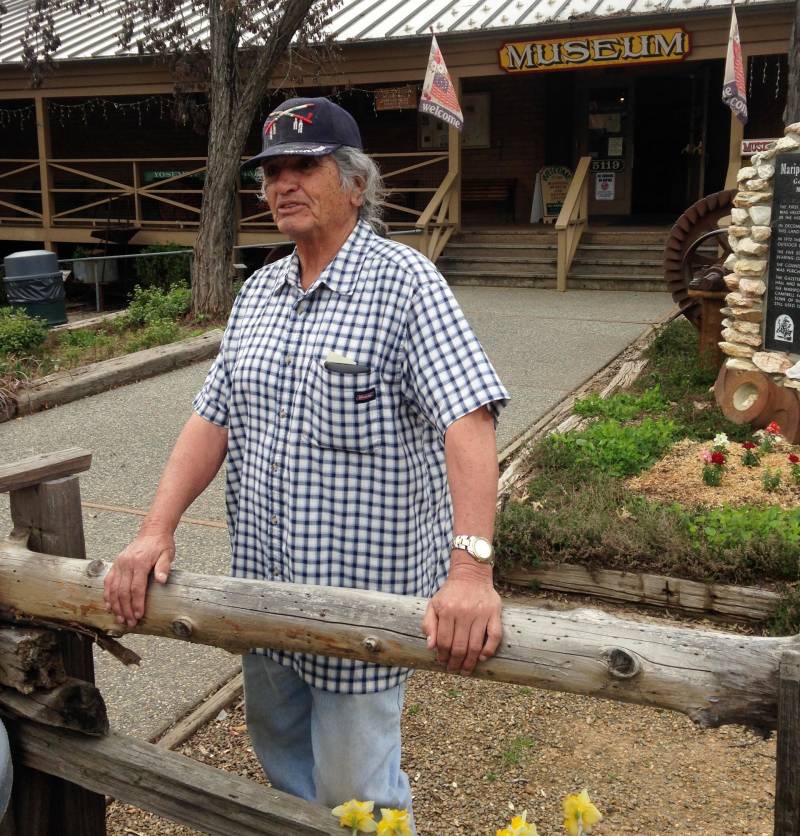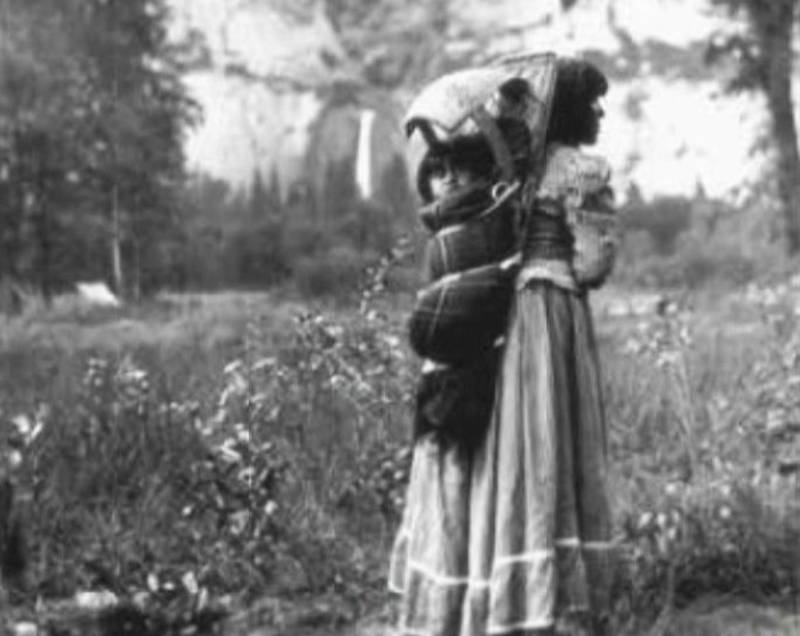Helen Coats stands at her kitchen sink, letting it fill with water for the breakfast dishes. “On with the chores,” says the 88-year-old. “I’m always doing something around the house when I have time.”
Outside her window, she notices a Subaru wagon pulling up her driveway. Her daughter’s dog starts barking.
“Oh, it’s Seventh-day Adventists, I mean Jehovah’s Witnesses. They’re coming to preach,” she says, as she opens the door leading to her screened-in front porch.
“Finally, you find me home, huh?” she yells out to them. Two young women come up the stairs and one of them tells her they’ll be brief. “I don’t want to bother you guys,” she adds.
She hands Coats some religious pamphlets and they make small talk. Coats is friendly and gracious. These aren’t the first proselytizers she’s met.
Coats was born in Yosemite in 1927 in what was called the old Indian Village.
“We lived in tents then,” she says. “I was born in a tent and my aunt Alice was the one who delivered me there.”

In third grade, Coats went to a boarding school at the Presbyterian Mission in North Fork outside of Yosemite.
Later, she worked for the park’s first concessionaire, the Curry Company -- in the laundry.
“In those days, the natives all worked as manual labor,” says Coats, whose mother was a Paiute and father a Miwok.
She met her husband, Jack, there. They married in the Yosemite Valley Chapel.
“I think that’s the first time they ever had that many Native Americans in that church,” Coats says. “We had our ceremony there. Mrs. Adams sang at our wedding.”
That’s photographer Ansel Adams’ wife, Virginia Best. Coats baby-sat their children as a teenager.
Coats and her husband have now been married almost 65 years. They live in a small beige house perched on a hillside off a highway that leads into Yosemite Valley.
But, Coats says, she rarely takes the road into the park. “Everything in the Valley has changed so much,” she says. “It doesn’t feel like home anymore. Nope it doesn’t feel like home. I’d say if they could change the mountains, they’d probably do that, too.”
All the landmarks she knew as a child are gone: the old Indian Village where she was born, the new Indian Village where she lived as an adult, even some of the trees she used as markers.
“I have to visualize everything in my head,” she says. “It’s the rocks that I really go by now 'cause the rocks never change.”
And now, even new landmarks have disappeared, signs with names derived from Native American words. Ahwahnee, the word for the Valley, comes from Awhaneechee, Coats says -- the name for the Miwoks who lived there.
“Originally those were native names,” she says. “So if you really want to get technical, who really put the names there to begin with, you know?”
But names like the Ahwahnee and the Wawona are gone, at least for now, while the park service and its former concessionaire, Delaware North, battle out the cost of these trademarks in court. Now there are new signs directing visitors to the Majestic Yosemite Hotel and the Big Trees Lodge.

Laurie Sylvester, a former Tuolumne County supervisor, says the loss of these iconic names makes her livid.
“The names that humankind has attached to this natural beauty ring in our hearts,” she says. “You say the Ahwahnee and it pulls up memories, but it’s mercifully a nod to the Native Americans and the first people that were here to witness this incredible sight long before the kind of commercial endeavor it is today.”
Sylvester, who is not a Native American, stands in the lobby of the newly named Majestic Yosemite Hotel. The word Ahwahnee is covered up with black tape on the Historic Register wall plaque.
“Just as we’re walking in today and we come down the hallway, I turn around to look at the historical sign and see black tape,” she says. “So it now reads the “black tape” first opened its doors to park visitors on July 14, 1927.”
Sylvester says she was so angry, she decided to start a petition on MoveOn.Org asking for the names to be released to the public. So far, the petition has more than 7,500 signatures, but it’s the comments that really get to Sylvester. Many are from people who lived in or grew up around Yosemite and feel an emotional attachment to the names.
“These names belong to the Native Americans,” Sylvester says. “I think that’s what really got me roiled up. No, no one can own those. Just because you can doesn’t mean you have to.”
In a statement, Delaware North, the former concessionaire, agrees that the names do hold a special place in the nation’s cultural history, but this is a contract dispute. And, the company says, it was willing to let the park service use the names for free while the issue gets resolved.

Southern Sierra Miwok elder Bill Tucker also grew up in Yosemite. He now lives outside of Mariposa. Tucker says names like the Ahwahnee were likely an acknowledgement to the Native Americans who once lived in Yosemite. But he doesn’t see it that way now.
“Now it’s like a money market, trademarks here and there,” he says.
Lois Hogan Martin is Tucker’s cousin. She also grew up in Yosemite and now lives in Mariposa. “This is part of my generation, part of what I remember about Yosemite, thinking of those names,” she says. “Those structures have been there as long as I can remember.”
Names like Wawona probably came from native root words, Martin says. They get interpreted in many ways. “You know, depending on who they told them to, how they spell them and the meaning,” she says.
Ahwahnee is also spelled A-W-A-N-I, Martin says. And she can’t help but wonder: What if the hotel’s name stayed the same, but the spelling was changed?
